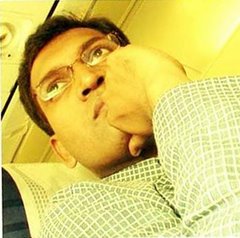My first encounter with the humbleness of Dr Raman Singh, Chhattisgarh’s CM for 12 years, was sometime in August 2003. At that time, he had sacrificed his UnionMinisterial post to take over as head of Chhattisgarh’s BJP unit just because his party wanted him to do so following the refusal of Ramesh Bais to take over the position.
Dr Singh was sitting in BJP’s Raipur HQ, along with a senior journalist Rasik Parmar who was his PRO at that time.
I was Star News correspondent. When I went to meet him, he offered tea. To my surprise he said “spend more time with Nand Kumar Sai who was the most likely Chief Minister candidate of BJP”.( “Tum mere pass time waste mat karo bade logo ke pass jao waha tumhe fayda hoga.”)
I didn’t go and insisted that he was the man to spend time with and learn more about the election trends.
To be true, I had strong feelings about this bespectacled Ayurveda doctor whose humbleness contrasted sharply with his physical stature (standing taller than me - 6ft plus).
He was completely novice with regards to facing television interviews.
My gut feeling made me push him into buying a bandhgala. Dr Singh reluctantly agreed. And for Star News’ Kaun Banega Mukhyamantri I made his promo instead of Sai’s.
In Mumbai, my Input Editor at that time Sunil Saini did not disapprove my inputs on CM candidature.
After few months, Dr Singh became the Chief Minister of the state. He kept his promise and gave me his first interview as CM.
Today, after three times of CMship, he rarely moves out of the camera frame while giving Tv interviews. When I look back I remember it took me more than 6 months to convince him to stay within the camera frame.
Dr Singh is still humble in his approach and despite not reporting his news for more than 10 years – he still makes it a point to meet me whenever he lands in Hyderabad.
Happy Birthday Sir.



